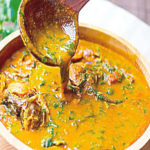What informed your decision to study medicine?
My decision to study medicine was informed by my passion to contribute my own quota to helping people alleviate their health problems. I have passion for that and I determine to put my all into it to see that people live normal and healthy lives as much as possible. Where they lack education about health issue, I will give it and where they develop diseases, I assist so that they don’t succumb to the disease and for them to live their normal lives again as every other person would do.
Did you exhibit the tendency to study medicine as a child or it just occurred along the line as you left secondary school?
I had the mind to study medicine from childhood and eventually grew to love it. At that time, seeing medical professionals dress alone made me love the profession. I loved their comportment too so I made up my mind to study medicine. Much more, I have an elder brother, Dr Tope Oladele, who is a medical practitioner too. He is my mentor. We were born by same father and mother. He actually served as my role model; that made me study medicine.
In what way did he encourage you?
I got a lot of information from him. He encouraged and supported me throughout my time in medical school. I had access to many of his books.
It is one thing to love a profession and opt for the course while it is another thing to face the reality, in the course of pursuing your dream. Studying the course was not easy. In fact, going through medical school was difficult. It took determination, diligence, perseverance and doggedness to go through it. It was as if a day is not up to 24 hours whereas in other courses, some people still have time for leisure but as a medical student, you will be carrying big books around. You can hardly socialise.
What is the difference between a medical student at that time compared to nowadays?
During our time in medical school, there was no iPad or easy access to internet facilities. Like I said, you would be carrying big books. You would spend several hours trying to read and understand what the books contain knowing full well that you are going to be dealing with lives by saving lives. We didn’t have option than to dwell very well on information in books and absorb it and use same for the benefit of humanity.
You are a woman; didn’t you feel intimidated that you found yourself studying a male dominated course?
Yes, males were more than females in medical school but it never crossed our minds because in medicine we didn’t see the difference between man and woman. We didn’t feel intimidated; it didn’t cross my mind that I was a woman competing with men in medicine. We had the passion; we had the goal that we wanted to be saving lives and that was what we pursued all through medical school and it remains our goal till date.
As a mother, how is it combining your roles in the home with your calling as a doctor?
It takes the grace of God, I will say, because it is quite challenging combining the home front with career. But, with determination and diligence we can actually combine the two without one affecting the other. It is a matter of setting your priorities, managing your time well and getting focused on what you want to do at a time coupled with the grace of God who gives the energy and strength to do all these things. You will be able to balance both.
Were there occasions when your family complained of not having enough time with you due to your busy schedule?
My husband never complained about my busy schedule. But at times when on call, my children might just ask that mummy you are going out again? And I will try to explain to them that I just received a call from the hospital. Since I had explained my calls to them; I explained my passion and duty, they are quite supportive. At times when I come back they would ask how is the patient were you able to help? If I say yes, they would be happy and say that is good then. They have realised that they sacrifice their time for an individual and the result is good so they are fulfilled.
How do you make up for the time that you miss at home?
I make up by being with them most times when I am free. I give myself fully to them when I am on leave. When I am busy I call them so it is not as if I am totally away from them. When I come back I sit with them and ask questions about what happened when I was away. I ask them what they want me to do and they let me know what they want. By so doing, I tried to bridge the gap that had been created.
What is your advice to ladies who want to study medicine?
They must examine and ask themselves questions. They must be really sincere to themselves and be sure that they have passion for it. If they don’t have passion for the job they cannot be satisfied and fulfilled. She may not just decide alone; she may need to consult with other ladies in the profession. She should ask about what they are sacrificing and how challenging is the course and the practice generally. If she tries to get information from people in the field she would be able to make informed decision on whether to go ahead to study the course or not.
What is your advice to policy makers on how to assuage the plights of women and children who are largely described as the vulnerable group?
Government should improve access to medical care and welfarism to the vulnerable groups in the society. Their medication should, for instance, be subsidised. If it is a child that is accessing medical care, they can decide on whether to make it free or very cheap and affordable. And for women they may half the cost. They may have advocacy programmes for them too by telling them about preventable diseases and how to live a healthy life so that they don’t end up coming to the hospital every now. This will go a long way because prevention is better than cure. They can give the mothers health education. Children can be taught health education in school. This will expose them to how to have good health and longevity. They should also be educated about the need for regular medical checkup. A research carried out in the medical ward shows that women top the list in diabetes going through the record of admission.
Does this suggest that women are more prone to diabetes?
I won’t want to be categorical on this but diabetes is a chronic disease and its prevalence is on the increase globally, especially in the developing countries of the world. Currently about 425 million people are living with diabetes globally.
In view of the staggering discovery about the prevalence of diabetes, what is your advice to members of the public on diabetes?
I advise members of the public to be aware of the disease and the risk factors. We have different types of diabetes and the type that is very common is type two diabetes. Over 90 per cent of people living with diabetes have type two diabetes. One of the risk factors of diabetes is obesity. There are some other risk factors like genetic disposition. Weight and obesity is commoner in women.
Will you like to advise women on types of food to give their children?
Yes, some of the foods we eat are fat-promoting; this may lead to obesity. My advice is that people should try and watch their weight and what they eat generally. Those whose babies are overweight should watch out for diabetes in future. More children are becoming diabetic because of exposure to fast foods and junks.
WATCH TOP VIDEOS FROM NIGERIAN TRIBUNE TV
- Let’s Talk About SELF-AWARENESS
- Is Your Confidence Mistaken for Pride? Let’s talk about it
- Is Etiquette About Perfection…Or Just Not Being Rude?
- Top Psychologist Reveal 3 Signs You’re Struggling With Imposter Syndrome
- Do You Pick Up Work-Related Calls at Midnight or Never? Let’s Talk About Boundaries






